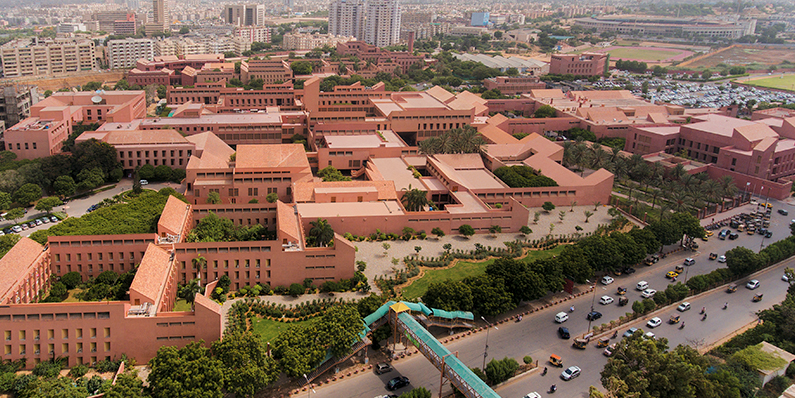
Seven Pakistani Universities Make It to 2023 QS World University Rankings by Subject

Seven Pakistani universities have made it to the 2023 QS World University Rankings by Subject, which is an encouraging development for the country’s higher education sector. The rankings, released by QS, highlight the top universities across the globe in different subject areas. The rankings are divided into five broad subject areas, namely Arts and Humanities, Engineering and Technology, Life Sciences and Medicine, Natural Sciences, and Social Sciences and Management.
In the area of Social Sciences and Management, Lahore University of Management Sciences (LUMS) tops the chart among Pakistani universities. Quaid-i-Azam University leads the ranking for Natural Sciences, while Aga Khan University is the only Pakistani higher education institution that has been ranked in the subject area of Life Sciences and Medicine. National University of Sciences and Technology (NUST) is the top Pakistani Engineering and Technology higher education institution. However, no Pakistani university has been ranked in the subject category of Arts and Humanities.
Let’s take a closer look at the detailed rankings of Pakistani universities across the remaining subject areas. In the Social Sciences and Management category, LUMS ranked at 322, while NUST ranked between 451-500. In the Natural Sciences category, Quaid-i-Azam University and COMSATS University ranked at =346 and 451-500, respectively, while NUST ranked between 451-500. In the Life Sciences and Medicine category, Aga Khan University ranked at =391. In the Engineering and Technology category, NUST ranked at =160, followed by COMSATS University Islamabad at =267, UET Lahore at =279, Quaid-i-Azam University at =348, LUMS at 401-450, and Punjab University at 501-530.
QS uses five components to rank institutions in the World University Subject Rankings, namely Academic reputation, Employer reputation, Research citations per paper, H-index, and International Research Network. The first two indicators are international surveys of academics and employers, which are used to assess the international reputation of institutions in each subject. The second two indicators evaluate the research impact and h-index for the relevant subject, obtained from Scopus, the world’s most comprehensive research citation database. The last indicator highlights the international research collaboration of an institution.
The ranking of Pakistani universities in different subject areas reflects their research output, academic reputation, and international recognition. It is a positive development for the country’s higher education sector, as it highlights the growing quality of research and education in Pakistan. However, there is still a long way to go, and the universities need to focus on improving their research capabilities, strengthening their international collaborations, and enhancing their academic reputation to make a significant impact on the global stage.








